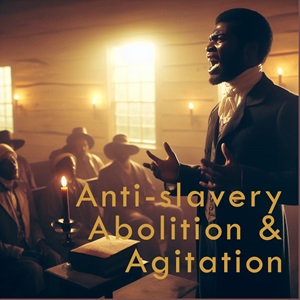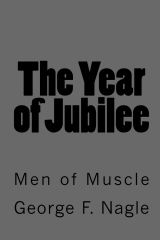

Study Areas
Anti-Slavery Activities of the Alexander Graydon Family in Harrisburg
Memories of Mary Ellen Graydon Sharpe
The October 1892 article below was a Harrisburg Telegraph re-publication of an original article from the Indianapolis News, written by Indianapolis resident Mary Ellen Sharpe. The daughter of Alexander Graydon and Jane Chambers (McKinney) Graydon, Mary Ellen was born in and grew up in an abolitionist household in Harrisburg, Pennsylvania and witnessed the growth of anti-slavery and abolitionist sentiment, primarily among white Harrisburg residents, through the work of her parents. The abolitionist viewpoint, considered radical at the time, became a source of friction between her family and the larger white community of Harrisburg, leading to the eventual relocation of her family to Indianapolis in 1847.
Her parents' abolitionist stance even caused strife within her extended family. Writing in "A Family Retrospect" in 1909, she noted
I well remember hearing conversations, arguments and often very bitter words between the elder members of our large connection, when they would meet en famille at our home, and what had always been a pleasure to me as a child became a source of dread. My parents and one uncle stood firm for the slave and the duty of abolition; while all the others considered them fanatics and hurled abuse upon them in no very gentle manner. My grandfather once said to my father, in my presence, "I can not see, Alexander, why you have taken up such wild ideas! Why do you attempt to force public opinion? Why not let well enough alone?" and I can even now hear my father's firm reply: "If the old society should work a hundred years it could not lift more than a few hundreds of poor slaves out of bondage a year, while this system is piling up its tens of thousands of agonized men and women and children every year of its existence. No, we will work until slavery is wiped out and is no longer a foul blot on our escutcheon." (pages 49-50)Sharpe's original Indianapolis piece was introduced by a few paragraphs from "G." The introduction identifies the location of the Graydon household on Market Street. This is the current site of the Harrisburg SciTech High School building.
THE POET WHITTIER.
HE OFTEN VISITED HARRISBURG
Reminiscences ot Him by a Former Harrisburg Lady.
Editor Telegraph: I hand you herewith an article written for an Indianapolis paper by a lady now a resident of that city, but who was born in Harrisburg and resided here until the removal of her family to the west. The writer is well known to a number of our older citizens.
The "reminiscences are very interesting because they relate to scenes and incidents which transpired in our own city some fifty years ago. The father of the writer, of whom she speaks, was one of the early abolitionists, then very few in numbers in this vicinity, and his house was one of the stations of the underground railroad used for facilitating the escape of fugitive slaves. His residence was the building opposite the court house in which Gilbert's hardware store is now located, and the parlor in which, as she says, the first anti slavery society was organized, covered a part of the space now occupied by the offices of my friends, Weiss & Gilbert. I well remember Messrs. Blanchard and Burleigh, of whom she writes, but I was not aware until I read her article that her father's house had ever been honored by the presence of Whittier.
I subjoin her communication, which I have no doubt will prove of great interest to the readers of the Telegraph.
G.
____________
The following is the article from the Indianapolis News, referred to above:
The name of Whittier for many year has been to me a household word. Aside from the melody and pathos of his beautiful poetry, his real living presence as a welcome guest at the home of my father, Alexander Graydon, is ever a cherished memory. In the early days of the anti slavery movement, when to avow such sentiments meant social ostracism, our home in Harrisburg, Pa., was the center and gathering place for the friends of the slave. Here came many earnest men from the atmosphere of William Lloyd Garrison and Wendell Phillips pledced to the downfall of slavery.
How impressed was I, a girl in her early teens, with their devotion and steadfastness of purpose in the midst of all the opprobrium and ridicule heaped upon them! I believe I can count on the fingers of my two hands the names of those in our goodly town who believed that slavery was wrong and prayed for a day of release. To others the presence of these men was an insult, calling for many threats of violence, even from those who had been our life long friends.
The first anti slavery society in that region was formed in my mother's parlors -- the court house, the expected place of meeting, being barred against them. For many months Mr. Whittier, William H. Burleigh, the poet and his brother, Charles, a most eloquent speaker, the Rev. Jonathan Blanchard and at times Lewis Tappan, of New York, were our constant guests, my mother, an enthusiast in her devotion to the cause, welcoming them under every possible condition of her family, no sacrifice of time or comfort being too great for her to make. Thev would lecture at different points and then return to recount their successes or disappointments and devise new ways to help the righteous cause. Of all these noble men who sat around our fireside none ever attracted my girlish fancy so much as Mr. Whittier.
His fine, clear cut features, his dark, soft eyes, his quaint speech, his lovely, serene expression, and with all, the vein or earnest steadfastness rnnmnsr through his character, coupled with his poetic genius, aroused in me an intense degree of admiration.
In returning to these stormy times in which we were so identified, I well remember a certain Sunday morning. My father, being an elder in the Presbyterian church, had induced our pastor, a dear, good man, to invite Mr. Blanchard to preach. Very fearful was he that allusions to the sin of slavery would be made which might offend some of his flock -- but was assured that nothing but a pure gospel sermon would be preached. However, in the opening prayer, when it was the custom to gather all the world, with all its needs and all its troubles, in one special petition to the throne of grace, Mr. Blanchard prayed "for the sick and afflicted, for those shut up in cells of disgrace," and, horror of horrors, "for the down-trodden and oppressed." There was a sudden movement down the aisles and slamming of the church doors by those sensitive souls who loved their Southern brethren as they did themselves -- many remaining suffered from severe attacks of nervousness. After this our good pastor studiously refrained from ever asking an abolitionist to preach.
I can well remember the piles of anti-slavery literature sent by the parent society and which found a place in our home. The writings of Wilberforce and Granville Sharp on the slave trade, our own Garrison and others who appealed to the humanity of man, and the stirring lyrics of Mr. Whittier were here collected, and stacks of documents, short and pertinent, awaited distribution. Many a time at night our good friends would carry them to the State House, placing a pamphlet on every chair in both halls, awaiting the perusal of its morning occupant. In the glare of day such a procedure would not have been tolerated. Our immediate friends rather avoided our house, fearing such inflammable material might produce spontaneous combustion.
Very proud am I to-day that my father and mother were brave and loyal to their conscience, and bore no mean part in helping to mold the public sentiment that in years after culminated in the grand proclamation of freedom to every slave in the great Republic.
A memory of my childhood lingers by me as I write of these times -- so long past. I recall an awakening from sleep to hear a peculiar call, then my father's step on the balcony, a hurried whisper, and then a group of dusky forms passing through my room, piloted by my mother to a secret hiding place.
Here often they remained and were cared for -- for many days before venturing farther on the road to freedom. Then, some dark, starless midnight, would find my father and other faithful friends leading them many a mile in silence before reaching the boat that would take them farther on their way to safety.
A few years ago I received a pleasant letter from Mr. Whittier, making many inquiries about my parents, who had borne with him the burden and heat of the day. After reverting to many who had passed on before he says: "In fact, but few of the 'old guard' are still left. Very thankful am I that I have lived to see the end of slavery."
Did we dare
In our agony of prayer
Ask for more than He has done?
When was ever his right hand
Over any time or land
Stretched as now beneath the sun!
Ring and swing,
Bells of joy on morning's wing
Send the song of praise abroad!
With a sound of broken chains,
Tell the nation that He reigns,
Who alone Is Lord and God!
-- "Laus Deo", JWhittier
Many have wondered why Mr. Whittier was never married -- a man so eminently fitted for the love of a happy home. Since his death much has been written in regard to it. Many, reading between the lines, have taken some of his sad refrains us veritable heart histories of his own. Be that as it may, I have often queried whether the letters of a certain young girl called "Gertrude," which he constantly received while with us, and which were always eagerly awaited, causing much pleasant raillery between the "Burleighs" and himself, may have been from the one woman of the world to him. Her early death or sadder change might have sealed the fountain of his own personal love, turning it into wider and deeper channels of charity to all mankind. This might have been, but the secret lies
Deeply buried from human eyes,
TilliIn the hereafter angels may
Roll the stone from his grave away!
Still the question recurs to mo again and again, had not the poet an early love, and did she bear the name of his fair correspondent "Gertrude."
MARY E. SHARPE. INDIANAPOLIS, September 30th.
Sources:
Further reading
 Covering
the history of African Americans in central Pennsylvania from the colonial era through the Civil War.
Covering
the history of African Americans in central Pennsylvania from the colonial era through the Civil War.
Support the Afrolumens Project. Read the books:
The Year of Jubilee, Volume One: Men of God, Volume Two: Men of Muscle
